
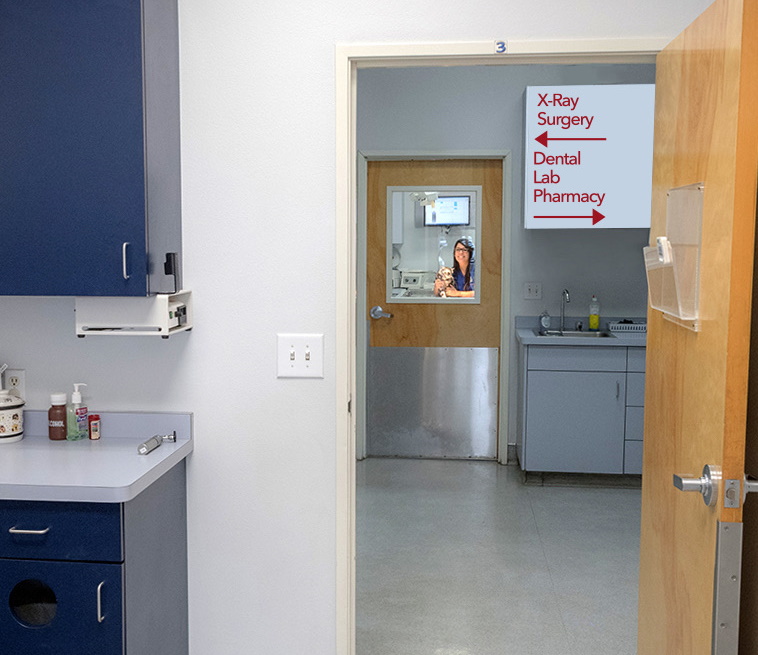
We need your feedback!
Thank you!

Dr. Cheryl Waterhouse, DVM
Your pet is a LOT like YOU!
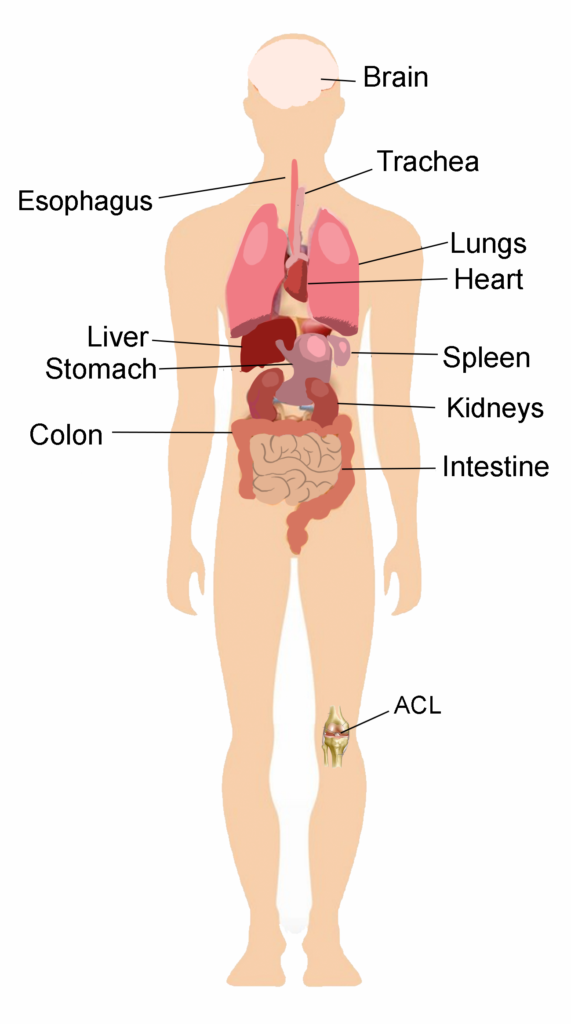
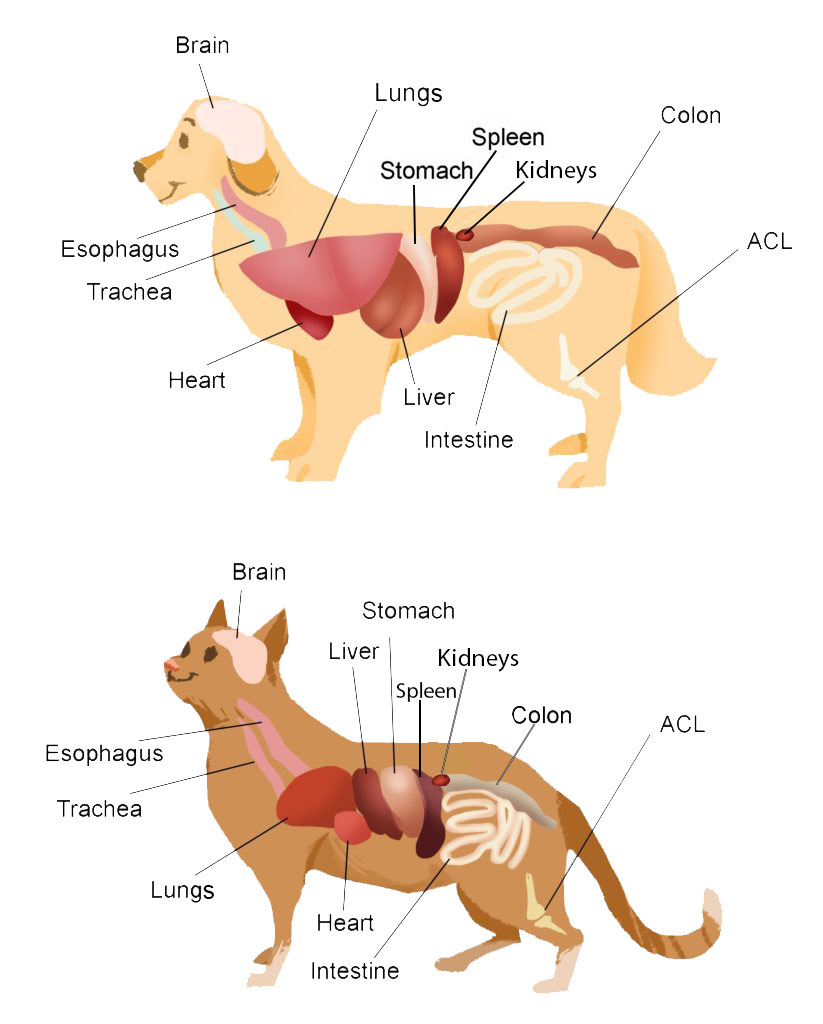
It comes as a big surprise to many that we share a very high percentage (~90%) of DNA with dogs and cats, and that they can get many of the medical problems we get — allergies, arthritis, cancer, cruciate ruptures (ACL), as well as diabetes, flu, heart, thyroid, liver, gall bladder diseases, and more. Additionally, some dogs and cats have higher rates than others for specific conditions like hip dysplasia, seizures, brachycephalic airway (breathing issue), back issues, etc. Thankfully, your veterinarian and staff have the education and modern equipment to take care of your furry family members.

1 of 9
The care your pet receives is a LOT like the care you receive!
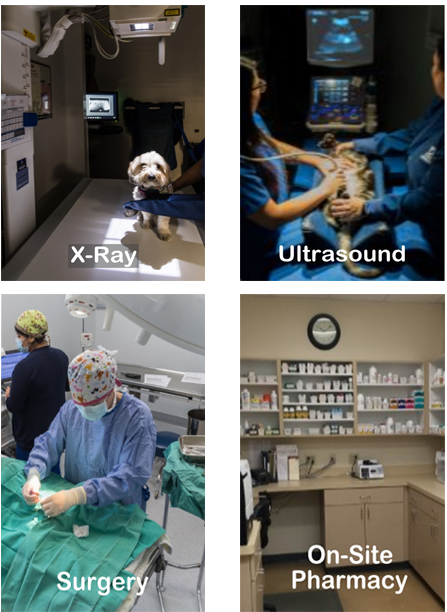
Today’s veterinary hospital offers your pet fantastic care! Peek behind the exam room door in today’s veterinary hospital and you’ll see the same technologies used for humans — a lab for blood tests, a digital x-ray machine, ultrasound machine, surgical room, pharmacy (~80% of all pet medications are identical to those used for humans), a dental suite, and more!
Imagine being able to go to one place for all your medical and dental needs!

2 / 9
Your other family Doctor!
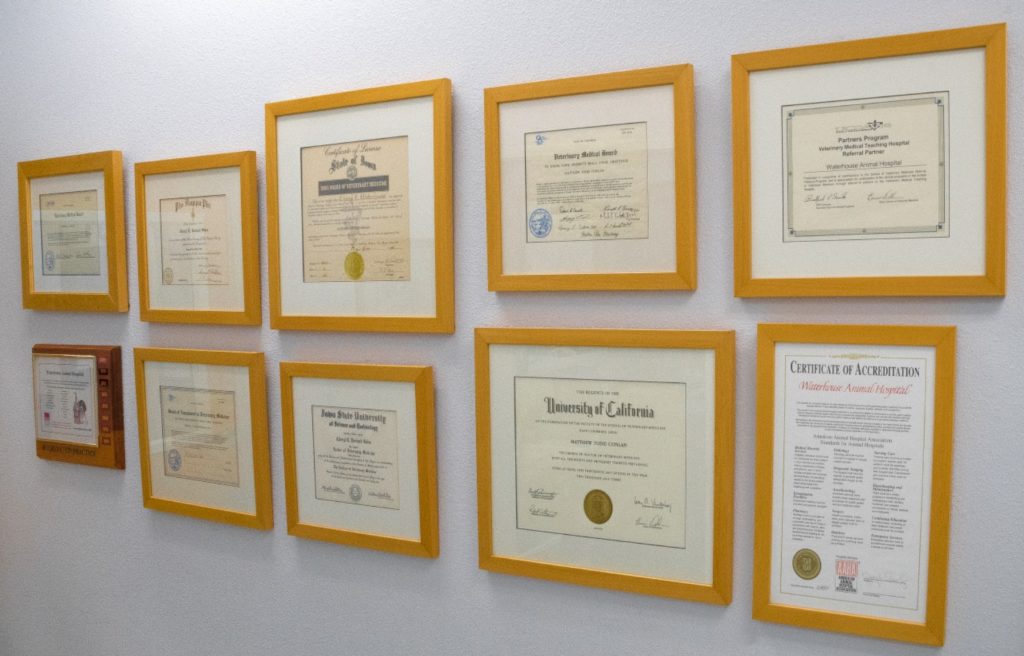
Veterinarians go through the same number of years of training as human doctors (8 — and more if specialized), and it can be even harder to get into veterinary school than human medical school. Registered Veterinary Technicians (RVTs — like human nurses) go to school and also must pass a comprehensive exam to become licensed. In addition, your vet and RVTs have to also complete continuing education classes each year in order to maintain their licenses—just like their human counterparts.
Some note that veterinarians and their staffs even have a tougher job than their human counterparts because pets can’t describe their issues, they hide their pain and can even bite and scratch during testing and treatment! And, unlike most human medical professionals, veterinary staff also have daily urine and feces cleanups which they do without complaint!

3 / 9
Specialty & Emergency Care
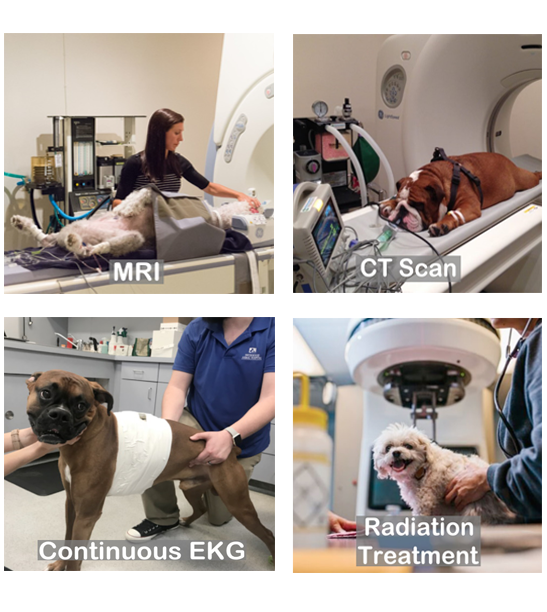
Just like us, your pet may need to seek care for a specialized problem or visit a 24/7 emergency room (ER).
Today’s specialty and ER veterinary facilities have highly trained staffs of:
• cardiologists
• dermatologists
• oncologists
• orthopedists
• ophthalmologists
• neurologists
• physical rehabilitation
specialists, and others
These professionals have gone through years of additional training (just like their counterparts on the human side) to be able to provide your pet with the latest in lifesaving care. They also frequently use equipment which is the same used for us! (An MRI machine costs ~$1M.)
Accordingly, veterinary medical fees can run into the thousands at general hospitals/clinics, and even tens of thousands of dollars at specialty hospitals. In fact, lifetime medical bills of $10,000 – $100,000+ are becoming more common. Just like us, pets can be protected by medical insurance.

4 / 9
Dentistry
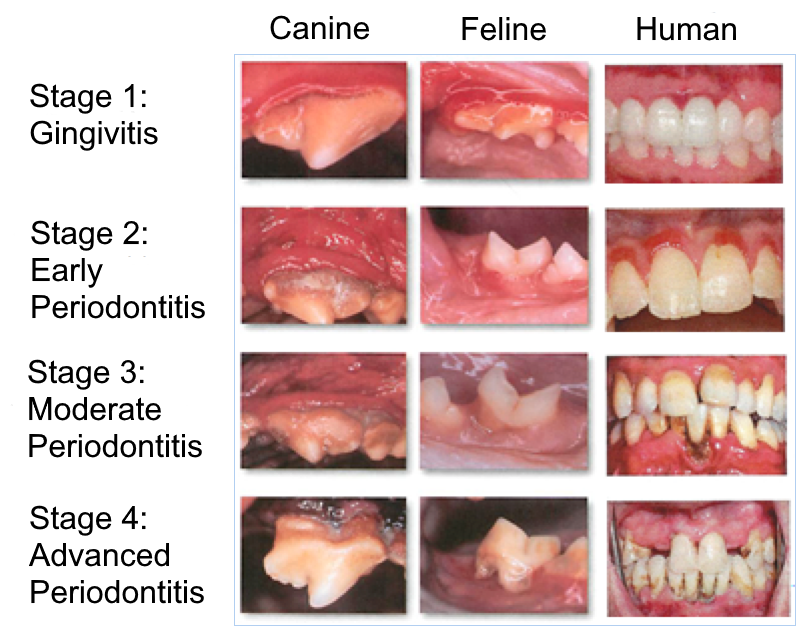
Good dental hygiene for humans is critical because the mouth is the gateway to the body. Same goes for your pet! Poor dental care is now recognized as a link to heart disease, diabetes, a shorter life, and daily pain!
Bad breath is no joke and unwillingness to eat or play with balls/toys are signs that painful and harmful dental problems are likely present. So, following your veterinarian’s dental recommendations is critical to ensuring a long, healthy and happy life for your pet.
By the way, your veterinarian uses the same equipment for your pet’s dental care that your dentist uses. And, today’s dental care for pets includes repairing broken teeth, root canals, sealants, and even braces in rare occasions.


5 / 9
How to help your pet
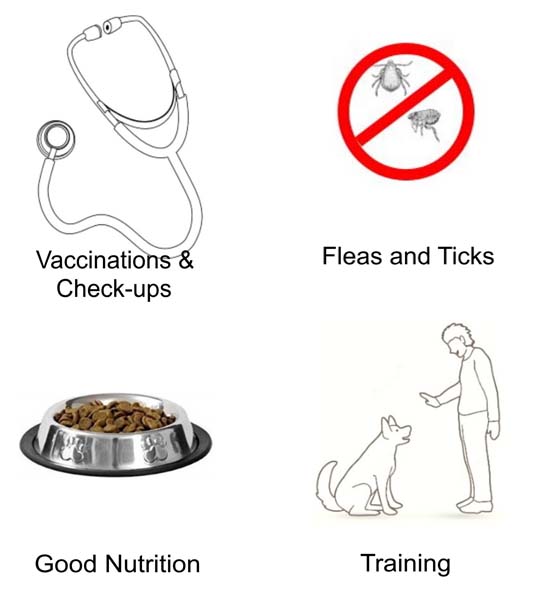
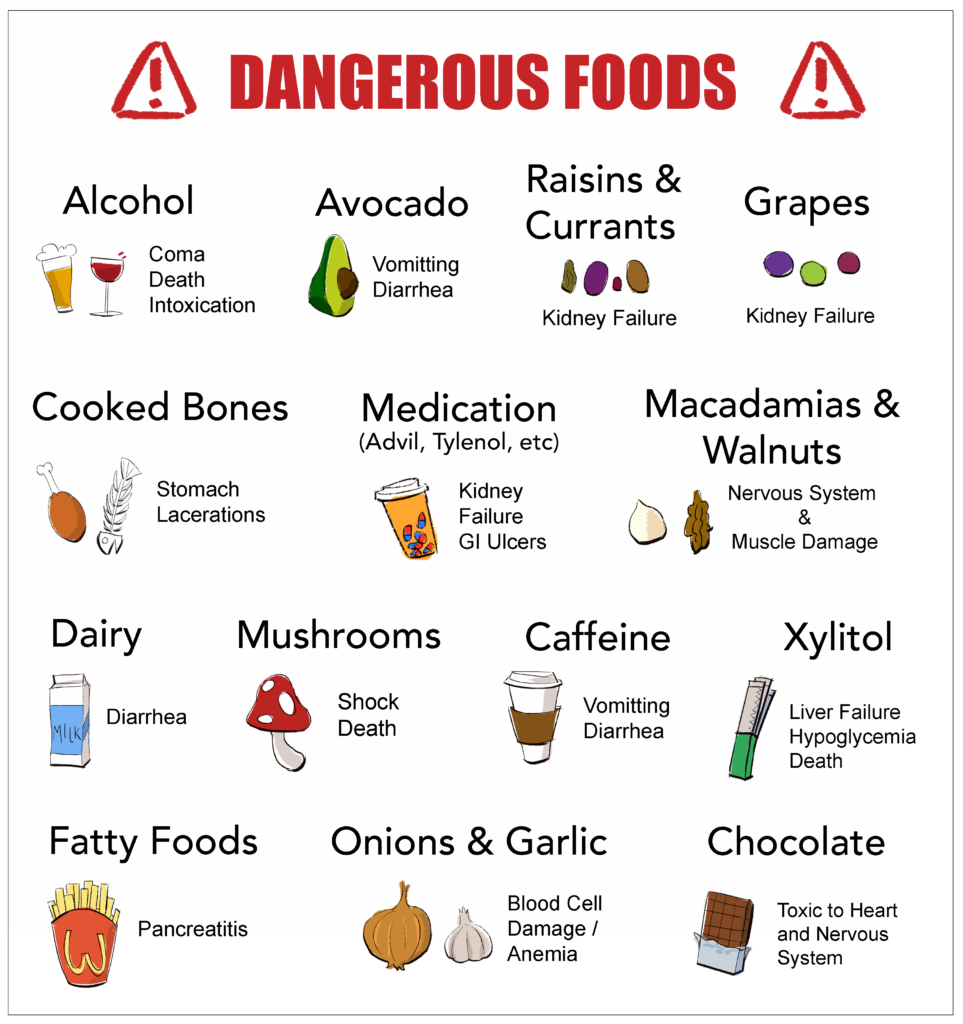
Just like toddlers, puppies and kittens explore the world via trial and all too often — error. That’s why it’s important to learn how to protect them from things that they might eat which could hurt or even kill them. And, just like we do for our toddlers, it’s important to train your pets so that they grow up to be the pets we all desire. Good nutrition for them is also critical, and therapeutic food can also greatly help with medical conditions! Extra weight can also lead to diabetes, lameness and limping, arthritis, congestive heart failure, cruciate rupture and more, and significantly reduce lifespans.
To provide your pet with the opportunity to live the longest, healthiest and happiest life, it’s important to follow veterinarian recommendations regarding vaccines, annual check-ups, etc. Pets live much shorter lives than humans, so it’s very important to not skip annual exams, especially since they can’t tell us their medical problems!

6 / 9
Veterinary medicine is advancing QUICKLY!
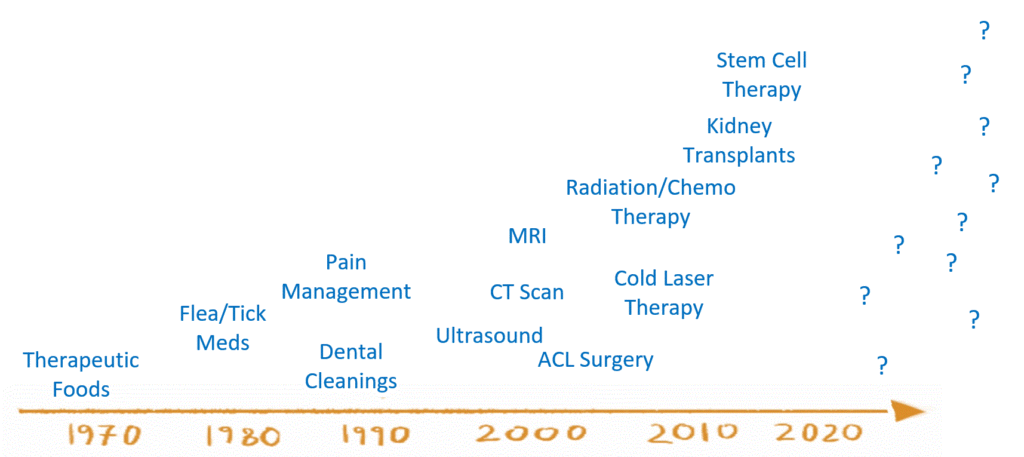
Thanks in part to human medicine, the past 40 years of veterinary medicine has seen amazing advances (dog lifespans have doubled, house cats live 2X longer than feral cats), and the future looks even more promising! 😊
In fact, many pets now have knee surgery, receive chemo/radiation for cancer, take lifelong medication for allergies, seizures, heart disease and insulin injections for diabetes, etc., and pacemakers and heart surgery are becoming more common. And, through research into the diseases we share with our best friends, they’re also helping us live longer! 😊
One way to look at veterinary medicine is to realize that whatever can be done for you today and in the future, is/will be very likely available for your pet too!

7 / 9
Healthcare Costs
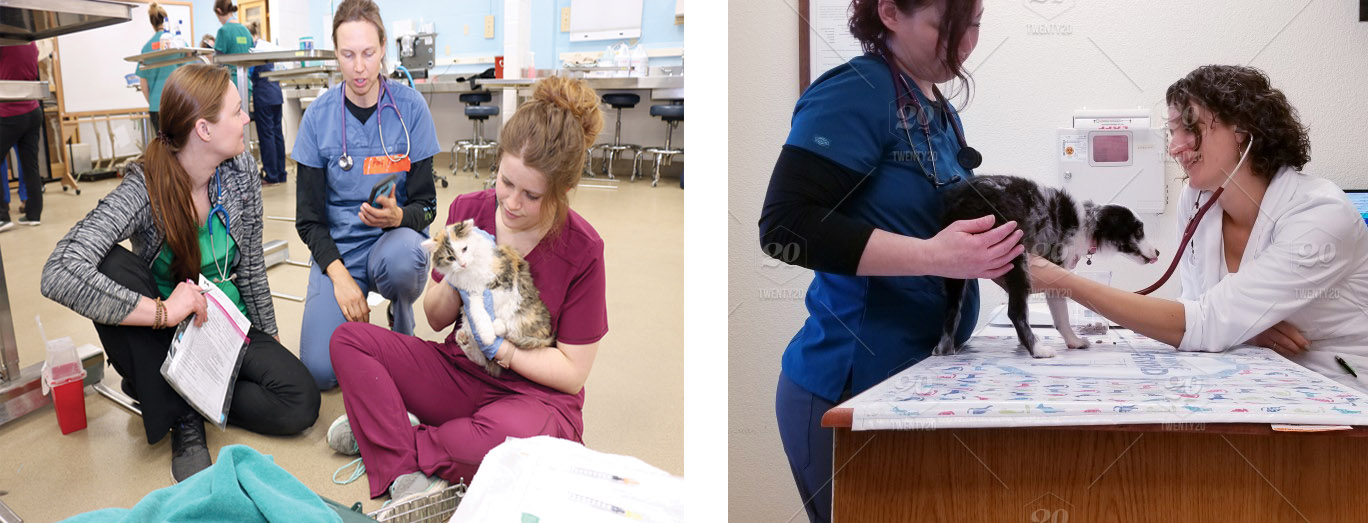
“Veterinary professionals LOVE pets, and that’s what has driven them from an early age to commit so much of their lives to medical education so that they can provide your pet with the latest and best care in order to live the longest, healthiest and happiest life possible.
They’d love to help your pet at no charge, but they have large financial obligations that must be met or they simply cannot exist.
Just like a human hospital, it takes a lot to run a veterinary hospital and this can be very stressful. (The veterinary profession has a suicide rate of more than 3X the general population.) After 8 or more years of higher level education, new veterinarians often have very large student loan debts. (Vet school education is ~$200,000, yet vets typically earn considerably less than their human counterparts and as the story below notes often charge significantly less for similar services.)
Additionally, veterinary hospitals have expensive tech equipment costs (often the same as that used for us humans), drug costs, not to mention salaries, insurances, building costs/rents, utilities, maintenance, taxes, etc. And, besides practicing medicine, veterinarians must also continue their education annually, hire/train/manage staffs, etc. which are critical to running complicated life-saving medical practices.
Sadly, some owners don’t understand all of this and react angrily when they receive a vet bill and tell vets and staff, “you don’t care about my pet… you’re just in it for the money”, which is really untrue and very hurtful. Unfortunately, this lack of financial unpreparedness means that pets don’t get the care they deserve and medical staff is forced to spend time revising treatment plans. This anger no doubt also comes from the fact that they weren’t aware of how advanced/costly today’s vet care is (similar to human medicine), and because they often don’t see their own human medical bills which are paid for by insurance. The section below shows that vet medicine is typically far less than similar/same human care.
Finally, because pets live shorter lives than us, veterinarians and staffs must frequently console grieving owners. In fact, veterinarians deal with death 7X more than human doctors and putting pets “to sleep” is extremely hard on them too–especially when it’s done only because the pets are financially unprotected/uninsured which occurs far more frequently than most people are aware. So, please treat them like your pet treats you.

Waiting for their best friend

8 / 9
Human vs. Pet Healthcare Costs
by Dr. Doug Mader, MS, DVM
Over the years, I’ve had numerous surgeries due to a serious auto accident and the record for me so far was on my left elbow—an olecranon bursectomy.
Interestingly, just prior to this last surgery, I performed a similar surgery on one of my patients, an adult, male Golden Retriever named Rover weighing in at 100 lbs. (I’m about 175 lbs. and he and I are about the same age in dog years
I received fantastic care during and after my surgery, and can guarantee that Rover got just as good quality of care as I did. The costs, however, are another story!
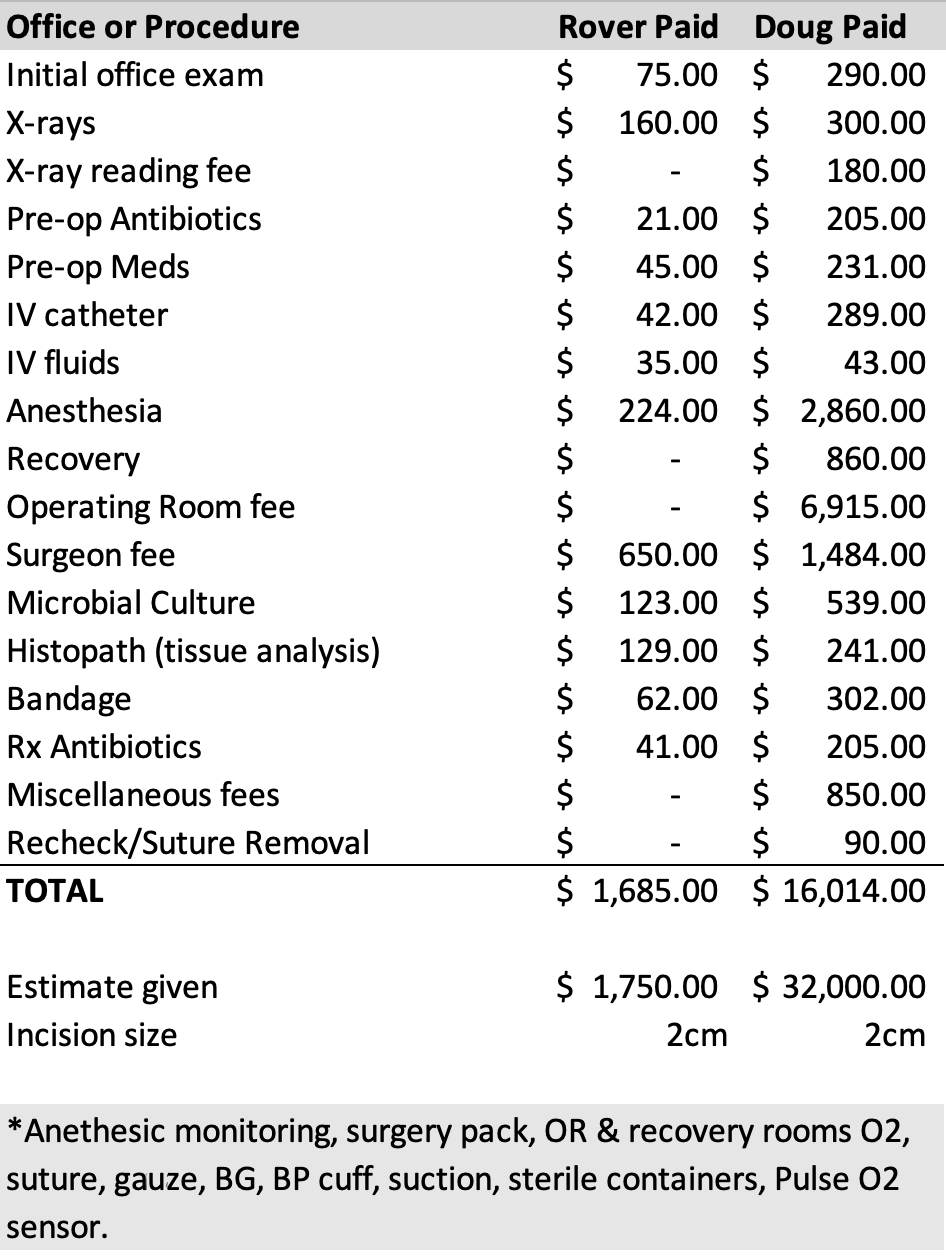

9 / 9
Your COMMENTS are VERY important to us!
Thank you!
Contributors:
Dr. Barry Kipperman, DVM, DACVIM, MSc, DACAW
Dr. Doug Mader, MS, DVM
Dr. Cheryl Waterhouse, DVM
Photo credits:
Brian Waterhouse
Illustrations:
Austen Marr
© 2023 Behind the Exam Room Door